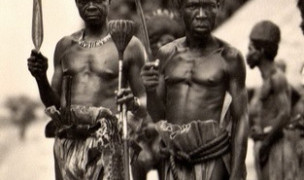 5 Terms
5 TermsHome > Industry/Domain > Anthropology > Physical anthropology
Physical anthropology
The branch of anthropology that studies the development of the human race in the context of other primate species.
Industry: Anthropology
Add a new termContributors in Physical anthropology
Physical anthropology
biopsy
Anthropology; Physical anthropology
The process of removing a tissue sample from a living organism for diagnostic examination (e.g., chorionic villi sampling).
adaptation
Anthropology; Physical anthropology
The process by which populations of organisms respond to long term environmental stresses by permanent genetic change--i.e., by evolving. See adjustment.
photosynthesis
Anthropology; Physical anthropology
The process by which plants, algae, and some bacteria use energy from sun light to create new organic molecules (specifically carbohydrates) out of carbon dioxide, water, and elemental nutrients in ...
adjustment
Anthropology; Physical anthropology
The process by which individual organisms respond to environmental stresses during their lifetime without changing genetically. Adjustments are generally not inheritable. Acclimatization and ...
racemization
Anthropology; Physical anthropology
The process by which amino acids change from the L-molecule form to their mirror image D-molecule form. This occurs naturally following the death of cells. See amino acid racemization dating.
locus
Anthropology; Physical anthropology
The position on a chromosome where a given gene occurs. The term is sometimes used interchangeably with gene, but this usage is technically incorrect.
rotational north pole
Anthropology; Physical anthropology
The point on the northern extremity of the earth where the axis of rotation is located. Compared to the magnetic north pole, the rotational one is relatively stable.
Featured blossaries
Marouane937
0
Terms
58
Blossaries
3
Followers
The 10 Best Innovative Homes
 10 Terms
10 Terms

